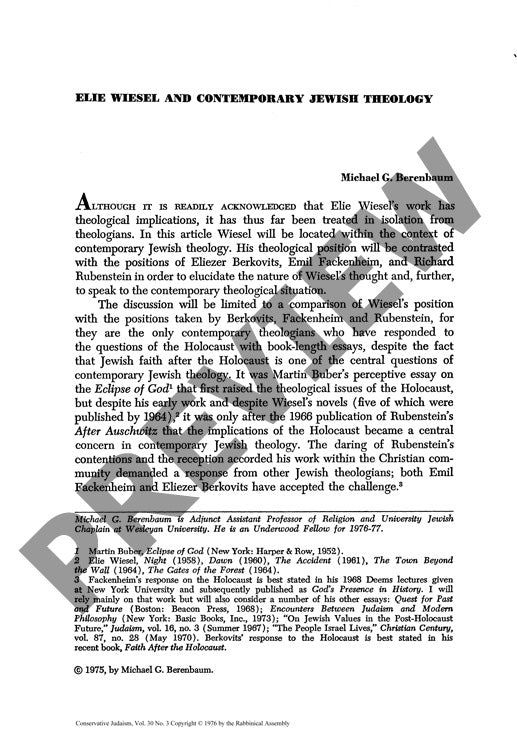Elie Wiesel and Contemporary Jewish Theo
Couldn't load pickup availability
The Holocaust shattered traditional Jewish theological frameworks, leaving scholars to grapple with fundamental questions of faith, covenant, and divine presence. Among the leading Holocaust theologians, Elie Wiesel emerges as a unique voice who maintains Jewish symbolic structures while radically transforming their meaning. Through comparative textual analysis of major works by Wiesel, Eliezer Berkovits, Emil Fackenheim, and Richard Rubenstein, distinct theological responses to post-Holocaust Jewish thought become clear. Where Fackenheim strives to preserve traditional theodicy through his concept of God's commanding presence at Auschwitz, and Rubenstein explicitly rejects the rabbinic God, Wiesel demonstrates the fundamental incompatibility of previous midrashic traditions with post-Holocaust reality. His approach differs markedly from Berkovits, as Wiesel prioritizes experiential truth over traditional theodicy. The analysis reveals Wiesel as a theologian of the void who, despite shattering previous frameworks through his depiction of Auschwitz as revelatory, maintains authentically Jewish forms. This combination of mystification and traditional Jewish expression explains his acceptance within the Jewish community despite the radical nature of his theological position.

More Information
-
Physical Description
-
Publication Information
Published 1976
ISBN
-
Publication Credits
Michael Berenbaum

